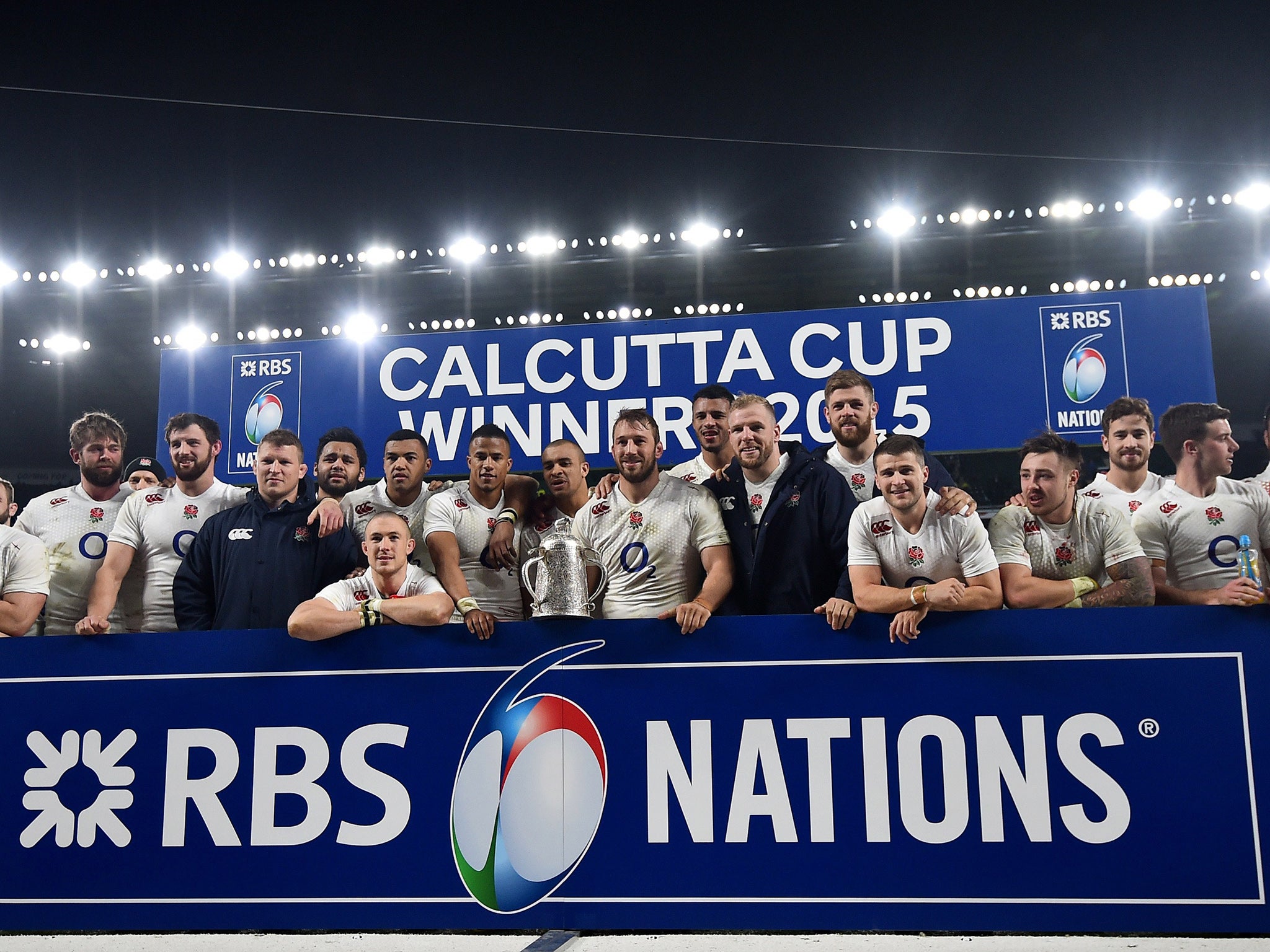England 25 Scotland 13: The English must up their game for World Cup
Lancaster’s men top Six Nations on points but were careless and lacked consistency against Scotland

For a moment, as darkness began to overwhelm a salmon sunset, Twickenham Man contemplated the unthinkable. England couldn’t, could they? Their rugby players are surely not the type to plumb the depths of cricket’s data-driven dunces, or their pampered equivalents in football.
They avoided the embarrassment of defeat to Scotland, but the scars of a performance of ostentatious generosity and improbable fallibility will not heal quickly. This was a last second swerve, to avoid a multi-vehicle pile-up on the A316.
Organisers of this autumn’s World Cup claim, with admirably straight faces, they are unperturbed by the prospect of England’s early elimination. Such disingenuous protestations of faith in the attractions of international rugby were revealed as daft.
Victory was utterly uninspiring when it should have been totally unsurprising. Once tribal passions had been taken out of the equation, and Scotland made their traditional trudge homewards to think again, the ripples in the relatively shallow talent pool remained.
England vs Scotland player ratings
Show all 30England, true to the modern culture of marginal gains, will take the positives from the timing and technique of fly-half George Ford, who contributed 15 of their 25 points. Scrum-half Ben Youngs reasserted himself. The backs ran sinuously into space, at a pace which will trouble the best. The forwards were powerful and assertive. And yet...
Dominance was diluted by carelessness. Possession should have been transformed into many more points. Two tries were squandered by forward passes. For the first 15 minutes, Scotland fullback Stuart Hogg was allowed to play them on his own, through a series of try-saving tackles.
England were as clinical as a dreamy poet, skipping through spring grass with a sonnet on the tip of his tongue. Instead of a firm inner core, they seemed to have the consistency of a badly-dunked biscuit.
Stuart Lancaster, their head coach, wore the look of a man steeling himself to dissect weakness, and amplify his disappointment. “It was very frustrating” he admitted. “We left three or four tries out there. There’s a lot to do, in what will be a big week. At least, overall, we showed our attacking intent is there.”
England top the Six Nations table, courtesy of a better points difference than Ireland, whose defeat was kept from the players by Lancaster. It was a surreal afternoon, even before the alcohol kicked in, and dulled the senses of a capacity crowd. England fans cheered Welsh tries against the Irish, shown on a giant screen in the car park. Former England hooker Brian Moore said their reflex action was replicated in the rarefied air of Twickenham’s ex-internationals bar. The Honourable Artillery Company band tempted fate by playing ‘We are the Champions’ in the preliminaries. Loyalists will pray that Karma will not be Wales’ 16th man, when they play their World Cup match at headquarters on September 26.
Should they maintain their current momentum over the summer break, that test will be critical. That is as it should be, since such competitions require nerve and execution. The All Blacks, justifiable World Cup favourites, would have obliterated a side of Scotland’s limited scope. Never forget their last win at Twickenham, in 1983, belongs to an age in which match reports were set in hot metal type, rather than crammed into the fridge freezer of cyberspace.
Despite the tribal intensity of the hollow-legged kilted hordes, many of whom appeared to be middle managers from Maidenhead on closer inspection in the rolling maul of Twickenham’s bars, this should have been a mismatch. Scotland are in peril of losing 10th place in the world rankings to Japan. England are fourth, well clear of the other significant side in their World Cup group, Australia. A quarter final against the auld enemy on the old cabbage patch on October 18 is a distant prospect.
The Calcutta Cup, purchased by ex-pats with silver rupees worth £60, has suffered from deflation, in a sporting sense. It no longer has the spiritual importance of old.
The signs of impending hysteria are unmistakable, with the stadium’s external stairways already festooned with huge posters, imploring the masses to “wear the rose”. Apparently it will “make them giants”, an intriguing prospect given that modern players rarely stop growing until they are past six feet tall, and carrying in excess of 16 stone of muscle.
England’s last meaningful dress rehearsal will be against France next Saturday when Gallic unpredictability will add an intriguing additional dimension to the occasion. The fireworks and official opera singers are all very well, but that occasion demands recompense, in the form of a performance of substance and conviction. England are on the dance floor, but will have to avoid the two-steps-forward, one-step-back soft shoe shuffle which has characterised Lancaster’s time in charge. He has still lost only one game on the old cabbage patch, but, whisper it, that was against Wales, in 2012.
The prospect of history repeating itself suddenly seems all too real.
Subscribe to Independent Premium to bookmark this article
Want to bookmark your favourite articles and stories to read or reference later? Start your Independent Premium subscription today.

Join our commenting forum
Join thought-provoking conversations, follow other Independent readers and see their replies